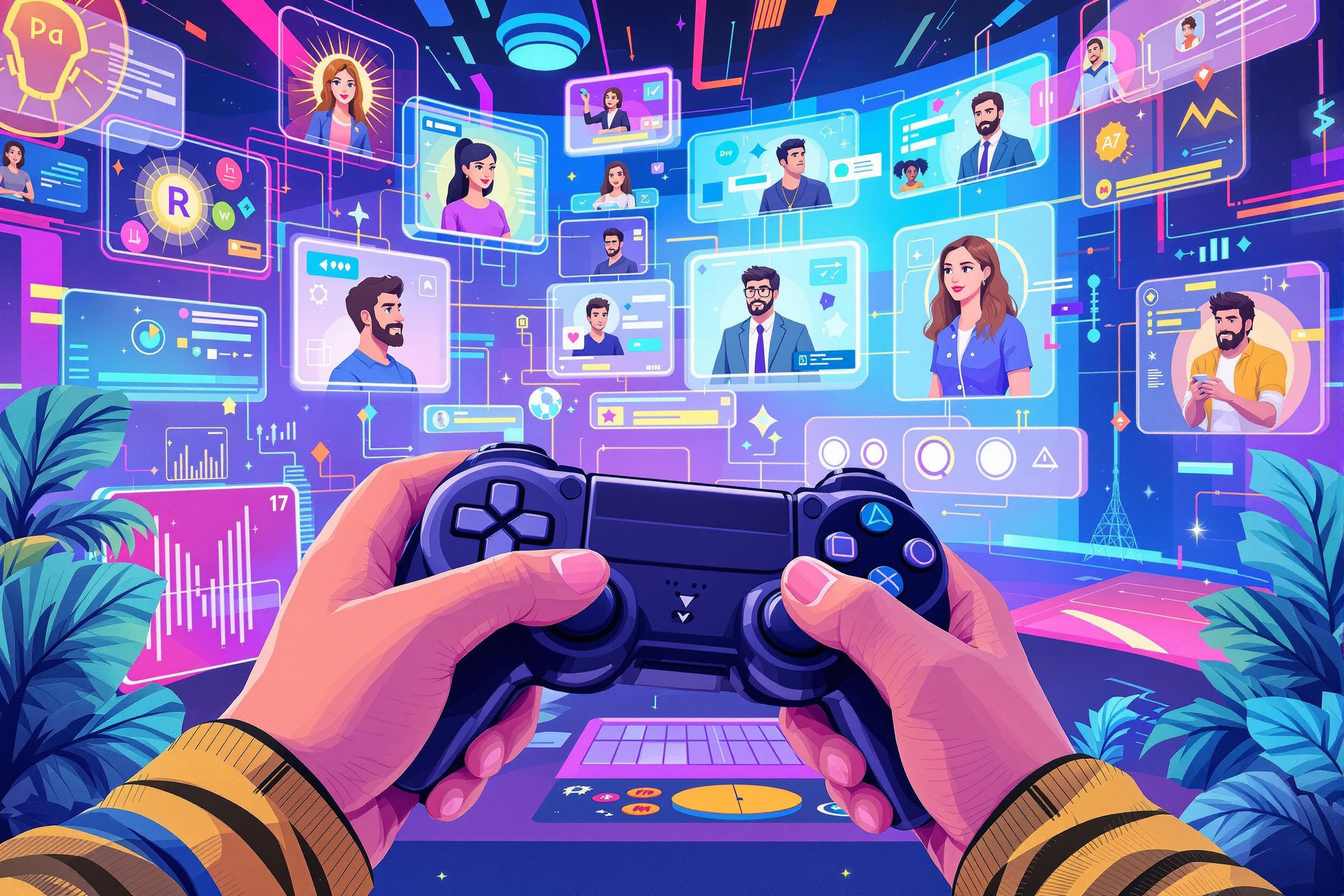
Game Sense
Game Sense refers to a player's ability to understand and predict what's happening in a competitive game without directly seeing it. It's like having a "sixth sense" for gaming. This skill combines experience, strategic thinking, and quick decision-making. Think of it as being similar to how a great basketball player knows where their teammates will be without looking, or how a chess master can predict their opponent's moves several steps ahead. In esports, having good Game Sense means a player can make smart decisions based on limited information, anticipate opponent actions, and react quickly to changing situations.
Examples in Resumes
Demonstrated exceptional Game Sense leading to tournament victory in CS:GO championships
Coached team members to improve their Game-Sense and strategic decision-making
Recognized for superior Game Sense and shot-calling abilities in competitive play
Typical job title: "Esports Players"
Also try searching for:
Where to Find Esports Players
Online Communities
Professional Networks
Events & Tournaments
Example Interview Questions
Senior Level Questions
Q: How would you develop Game Sense in a junior team?
Expected Answer: A senior player should explain methods like reviewing game footage, practicing scenario-based situations, and teaching players to track opponent patterns and tendencies. They should emphasize the importance of communication and team coordination.
Q: Describe a situation where your Game Sense made a crucial difference in a professional match.
Expected Answer: Looking for detailed examples of reading opponent strategies, making successful predictions, and how their decision-making impacted the game outcome. Should demonstrate leadership and ability to communicate insights to teammates.
Mid Level Questions
Q: How do you maintain awareness of the game state during intense moments?
Expected Answer: Should explain practical techniques for tracking important game information, managing stress during high-pressure situations, and making quick decisions based on available information.
Q: What factors do you consider when predicting opponent strategies?
Expected Answer: Should discuss observation of opponent patterns, understanding of common strategies, and how they use this information to anticipate and counter enemy moves.
Junior Level Questions
Q: What do you think are the key elements of good Game Sense?
Expected Answer: Should mention basic concepts like map awareness, sound cues, understanding common strategies, and keeping track of important game events.
Q: How do you practice improving your Game Sense?
Expected Answer: Should describe methods like watching professional matches, reviewing their own gameplay, learning from experienced players, and actively thinking about game situations.
Experience Level Indicators
Junior (0-2 years)
- Basic understanding of game mechanics
- Ability to communicate important information
- Knowledge of common strategies
- Basic map awareness
Mid (2-4 years)
- Strong ability to read opponent patterns
- Quick decision-making under pressure
- Effective team communication
- Good understanding of meta strategies
Senior (4+ years)
- Advanced strategic thinking
- Ability to lead and make calls
- Teaching and mentoring abilities
- Tournament experience
Red Flags to Watch For
- Unable to explain decision-making process
- Poor communication skills
- Lack of team play experience
- No understanding of basic game strategies
- Cannot provide examples of using Game Sense in matches
Related Terms
Need more hiring wisdom? Check these out...

Level Up Your Hiring Game: How Gamification is Revolutionizing Talent Acquisition

Automated Scorecards in ATS Systems: Your Secret Weapon for Smarter Hiring Decisions

Ghosted Again? How to Stop Candidates from Disappearing and Start Engaging Them Better

